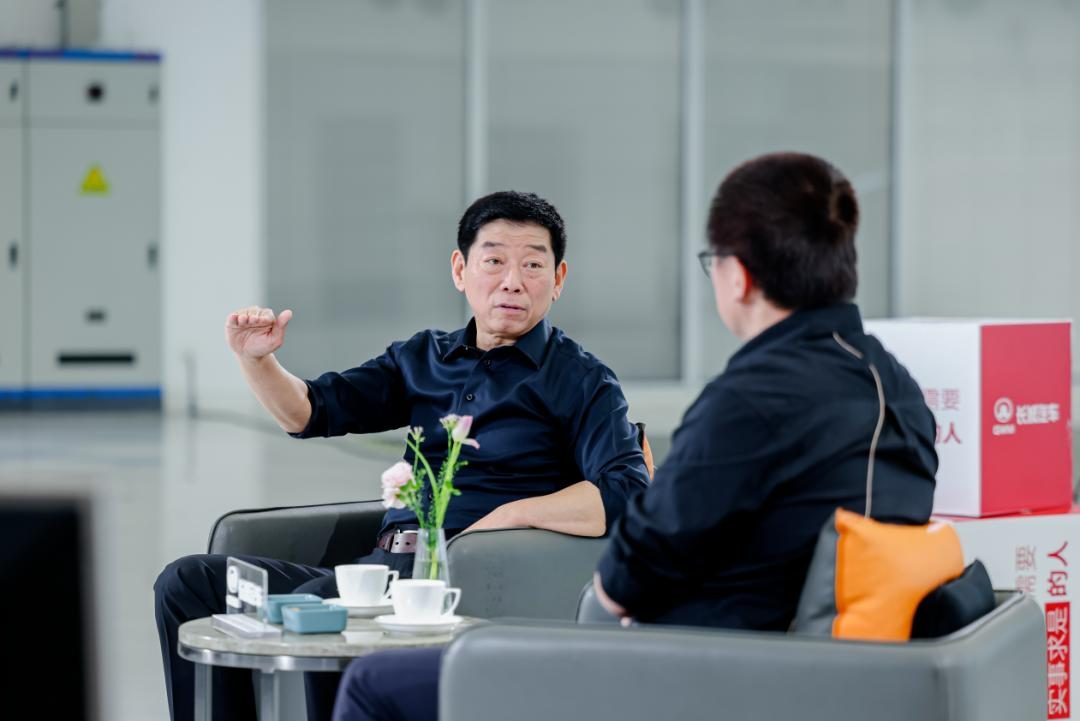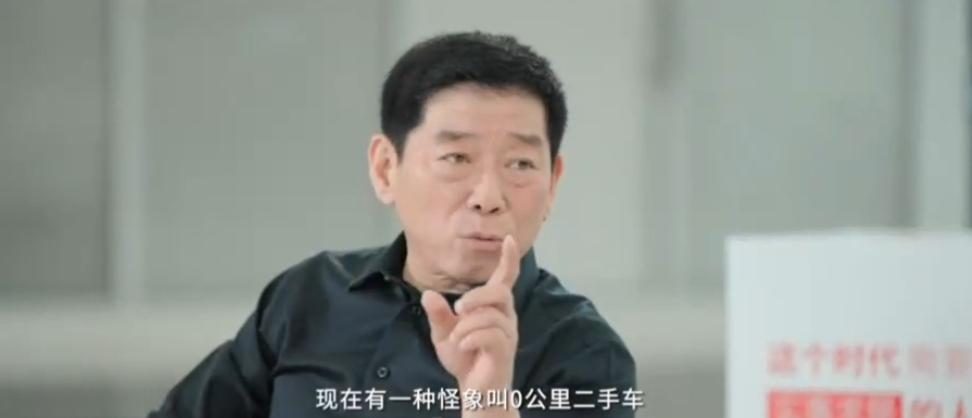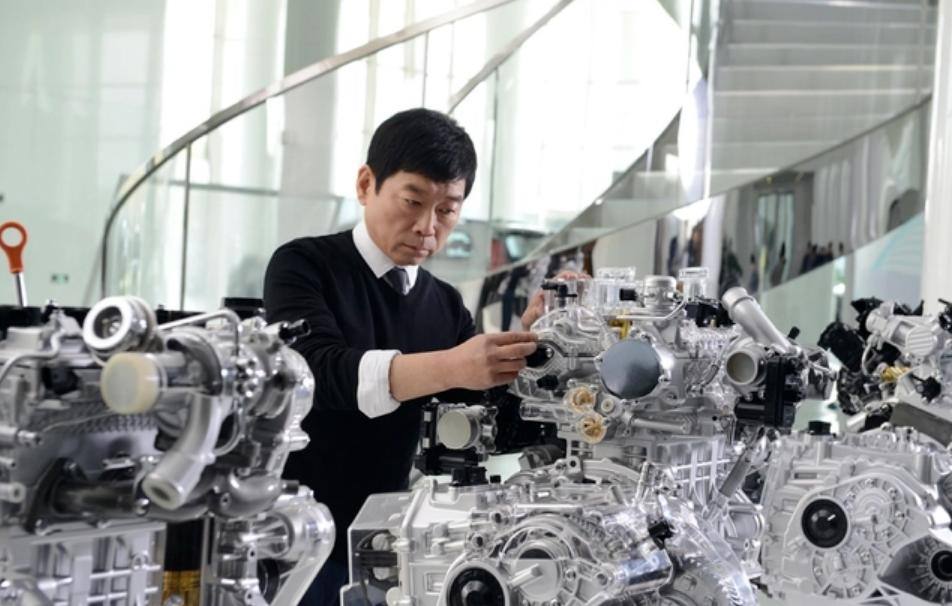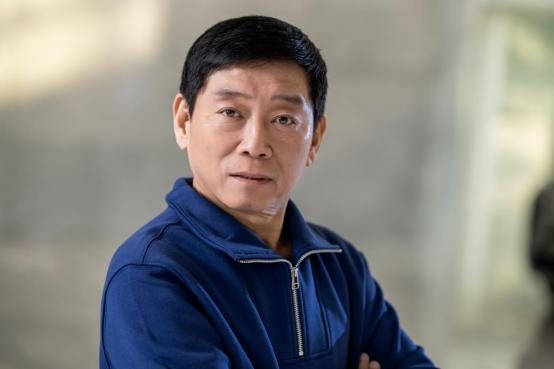Bursting the Bubble of False Prosperity: How Can Domestic Automakers Secure Their Future?
![]() 05/27 2025
05/27 2025
![]() 630
630
Author: Rustless Bowl
“Can Great Wall Motors survive next year?”
This was the question Wei Jianjun posed to Great Wall Motors in 2020, on the cusp of its 30th anniversary.
Five years later, this query has resurfaced, now directed at China's automotive market, which is mired in an illusory prosperity.
On May 23, in an exclusive interview with Sina Finance, Wei Jianjun, Chairman of Great Wall Motors, stepped forward once again to publicly decry the chaos and bubbles within the industry, supporting the long-term development of China's automotive industry with tangible actions.
1. Bidding Farewell to False Prosperity: The Automotive Industry Needs to Strip Away the "Emperor's New Clothes"
From openly opposing vicious price wars among enterprises and rejecting traffic-driven marketing, to now revisiting the crux of the automotive industry's development, Wei Jianjun, under the camera lens, has repeatedly doused "cold water" on the industry's exuberance.
Behind the scenes, amidst overwhelming controversy, some believe he is overly harsh on China's automakers and too pessimistic about industry development, while others view this industry veteran as "level-headed".
However, during his third interview with Sina, Wei Jianjun's attitude was not as conciliatory as expected. Rather, it was even more unyielding. - "As long as the industry can develop healthily, I am not afraid of criticism," he holds this belief, prescribing a "cure" for the seemingly glamorous Chinese automotive industry.

It's easy to say flattering words that please all parties, but it's difficult to speak the truth and burst the industry bubble.
This is why Peter Drucker, the father of management, repeatedly emphasized:
"The worst mistake is not getting the wrong answer, but seeing the wrong problem from the outset."
What exactly has Wei Jianjun seen?
In fact, it's the current state of China's automotive industry, which is "half sea water, half fire".
On one side, there's the upward trend and wave of Chinese automakers going global. In the past year, China's auto production and sales have consistently maintained a scale of over 30 million vehicles, ranking first globally for 16 consecutive years. On the other side, however, amidst extreme internal competition, low-price wars of "trading volume for price" are constantly eroding the macroecology of China's automotive industry.
A set of unfavorable data reveals that the nearly 900-day price war among automakers has pushed the profit margin of the entire industrial chain below 3%.
For reference, the profit margins of various segments of the chip manufacturing industry range from 15% to 40%, and the average profit margin of high-end equipment manufacturing industries generally sits at approximately 7% to 9%. Even in the ultra-competitive smartphone industry, the overall profit margin of the upstream and downstream remains around 5%.
In other words, the 3% profit performance of domestic automakers is almost lower than all emerging manufacturing industries, even lower than the smartphone assembly segment, which is considered a labor-intensive industry. Stripped of its fancy modifications of intelligence and technology, China's automotive industry is nearly a "sweatshop" cloaked in advanced manufacturing.
Faced with this situation, Wei Jianjun is acutely aware that the hidden dangers brought about by low profits are constantly eroding the healthy development of the industry.
On one hand, for the entire vehicle brand, excessively low profit performance means that a healthy "R&D - sales - investment" cycle is nearly impossible to establish. The brand is completely losing money to gain popularity, the business model is unhealthy, and operational uncertainty is also amplified.
Since the beginning of the year, various changes in the automotive industry have also confirmed Wei Jianjun's judgment. Faced with the harsh reality of over 4,000 4S stores closing down, numerous new forces exiting the market, and layoffs in the past year, "stable growth and stable profitability" have become the strategic keywords for the industry in 2025.
On the other hand, from the user's perspective, a 3% profit margin cannot even cover a company's R&D costs. Without stable hematopoietic capabilities as support, all technological upgrades, after-sales guarantees, and quality safety are out of the question, which also invisibly overdraws users' future safety and experience.
In recent years, from "betrayal of old car owners" to "betrayal of new car owners", from safety hazards caused by excessive promotion to the strange phenomenon of "0-kilometer used cars" emerging under unlimited low prices, the distorted automaker ecosystem is consuming the brand and trust capital accumulated by Chinese brands over the past many years.

This is also why Wei Jianjun, who refuses to be a "Mr. Nice Guy", chooses to actively fire at the chaos in the industry. As he bluntly stated in the interview: "Blowing out other people's lights, the key is what kind of lights. If it's a ghost light, I must blow it out to allow the industry to develop healthily."
Looking back at the history of industrial competition, from home appliances, panels to photovoltaics, and mobile phones, no industry has prospered through price wars, nor has any brand ascended to the throne of the industry by blindly lowering prices.
Achieving survival of the fittest requires market competition, and reasonable competition helps improve total factor productivity, benefiting consumers while ensuring that enterprises obtain sufficient profits to continue innovating. However, low-level "involutionary" competition will only lead to a lose-lose outcome.
The story of the automotive industry will be no exception, as evaluated by the central media:
"Unscrupulous 'price rolling', follow-the-trend 'race track rolling', and encirclement-style 'talent rolling' not only squeeze corporate profit margins, disrupt the stability of the industrial chain and market environment but also hinder the high-quality development of the industry."
2. Reshaping the Industrial Ecology: How Can Domestic Automakers "Pass Three Levels"?
From the previous surge in growth to now seeking profit as king, amidst the complex situation of insufficient demand, intensified competition, and consumers continuing to wait and see, Chinese automakers undoubtedly need to change their way of life.
Out of regret and heartache for countless automakers trapped in the quagmire of price wars, automotive veterans, including Wei Jianjun, have repeatedly spoken up for the fate and long-term development of Chinese automakers while actively offering advice and strategies for industry development to escape the endless internal competition.
A consensus is that for the automotive industry, bubbles do exist, but it is by no means incurably ill or irreparable.
By clearly considering the "three questions" before them, the automotive industry can still rejuvenate and achieve stable and long-term development after proactively bursting the bubble.
First, does the industry want false prosperity now, or a return to the essence of business?
Returning to the essence of business means shifting from a price war to a value war, focusing on listening to user needs at the product level and actively innovating in R&D. At the management level, it means breaking down into smaller parts to agilely respond to market changes.
Taking Great Wall Motors as an example, Wei Jianjun has repeatedly stated that Great Wall will not follow the price war. Compared with its peers, Great Wall's transformation and development do not prioritize speed but rather stability. For instance, in the early stages of the new energy transition, Wei Jianjun transformed Great Wall from group army operations to special operations groups. This increased the autonomy of the team, and in 2022, strategic integration began, with the interior maintaining flexible dynamic adjustments.
As the number one leader, Wei Jianjun is also getting closer to users and the front line of business. According to reports from LatePost, Wei Jianjun personally leads the key models of Great Wall Motors, serving as the project manager for important models and making decisions on key issues such as resource coordination, model prototyping, and market launch.

In addition, in external user communication, Wei Jianjun himself has also proactively engaged with the internet, building a personal IP, and a group of senior executives from Great Wall have also opened Weibo, Douyin, and WeChat video accounts under his leadership.
Great Wall Motors' exploration is a microcosm of many brands that adhere to long-termism. From a macro perspective, more and more automakers are following this trend, shifting their development focus from "price" to "internal" and "user".
The second question is on the operational side: Does the industry prefer short-term revelry, or building an industrial chain ecosystem and pursuing sustainable development?
Pursuing sustainable development means using standards to constrain and ensure product quality, and further extending this to the used car market and the industrial operations side, saying no to the chaos of falsification under capital coercion, and embracing the resilience of emerging manufacturing development.
In recent years, under the shadow of price wars, some OEMs have coped with competitive pressure by drastically reducing component procurement prices, which has also caused small-scale suppliers to gradually exit, and the risk of disruption in the automotive supply chain has increased.
When the automotive industry enters a vicious cycle of low prices, with insufficient continuous investment in technology and reduced delivery redundancy, the health and safety of the industrial chain become key hidden dangers affecting the sustainable development of China's automotive industry.
As Wei Jianjun mentioned in the interview, for the healthy development of electric vehicles, they must not be excessively coerced by capital. Any business needs to have profits to generate revenue and continue to invest in order to develop.
The third question is about long-term goals: Should the industry pursue "sales figures" in the long run, or "winning the respect of the world"?
The automotive industry, in the final analysis, represents the face of Chinese manufacturing. Short-term prosperity in sales is not the goal; what is important is to truly establish a global presence and gain the trust of the world in Chinese brands and the hard power of Chinese manufacturing. Achieving all this requires long-term investment in technological development.
Perhaps Great Wall is the most representative of Chinese automakers in terms of firm investment in technology. For three consecutive years, Great Wall has invested over 10 billion yuan in R&D, with a research and development team of over 10,000 people, including nearly 100 foreign experts from around the world. Great Wall Motors' "Forest Ecology" R&D system also covers core technologies across the entire new energy and intelligent industrial chain.
Regarding this, Wei Jianjun also specifically mentioned: "(Great Wall) sets no upper limit on the R&D budget. As long as it can be converted into technological achievements, it is worth it."
Behind this, this industry veteran is deeply aware that only by "long-term investment" in technological research and development, focusing on effective user-centric innovation, can one ultimately win the respect of the world and the votes of users.
3. Embracing Long-Termism: How Can Domestic Automakers Win in the Future?
This is perhaps also why Wei Jianjun can still gain the support of many netizens after repeatedly publicly criticizing the industry.
Compared to the traditional Confucian idea of "being cautious in speech and conduct" and "speaking too much will lead to mistakes", China's automotive industry needs Wei Jianjun and his "truthful words".
As an industry veteran who has been deeply involved in car manufacturing for over 30 years, it can be said that Wei Jianjun is one of the most qualified and responsible people in the entire domestic automotive industry to stand up and criticize chaos.

Moreover, many of Wei Jianjun's previous viewpoints and appeals have been positively verified by policies and the industry.
He criticized that "hidden door handles pose safety hazards", and received a response from high-level authorities initiating the formulation of "Technical Requirements for Safety of Automobile Door Handles"; he opposed excessive packaging of autonomous driving, emphasizing that "assisted driving should not usurp the main role", and in April 2025, the Ministry of Industry and Information Technology issued a document to rectify exaggerated promotions of intelligent driving.
As for his criticism of the most intense internal competition, it is also clearly consistent with the policy direction of high-level authorities.
From this perspective, the subjective intention of Wei Jianjun, who frequently expresses his views in the public opinion field despite controversy, is not to seek commercial benefits for himself, but to shoulder the due responsibilities of a leading automotive enterprise and promote the healthy and long-term development of the industry.
In the complex and opaque public opinion field of the automotive industry, compared to "being cautious in speech and conduct", it is more important to "listen to one's words and observe one's actions". Practice has shown that Wei Jianjun has achieved "unity of words and deeds", and his viewpoints are also the commitments that Great Wall Motors has been deeply practicing for many years.
Accumulated over 12 billion kilometers of driving data in 35 years;
Invested 500 million yuan to build the largest safety laboratory in Asia;
The test drive team trekked from Mohe at -40°C to the plateau at an altitude of 5,000 meters...
As he stated in public:
"There is no quick fix in the realm of car manufacturing. Only by steadfastly prioritizing quality can we fully justify the trust bestowed upon us by our users."
Reflecting on our journey, be it the resolute choice to abstain from price wars and embrace high-quality growth, the commitment to a rigorous quality control system and meticulous supply chain management, or the strategic focus on substantial investments in technological innovation to fortify our brand, Great Wall Motors has consistently demonstrated its dedication to upholding the quality benchmark of China's automotive industry through concrete actions.
We have constructed a seamless loop of responsibility, ensuring the well-being and safety of our consumers. In this context, domestic automakers, poised at a historical juncture, require more individuals like Wei Jianjun to unite and collectively build a "Great Wall" that supports the high-quality advancement of China's automotive industry.







